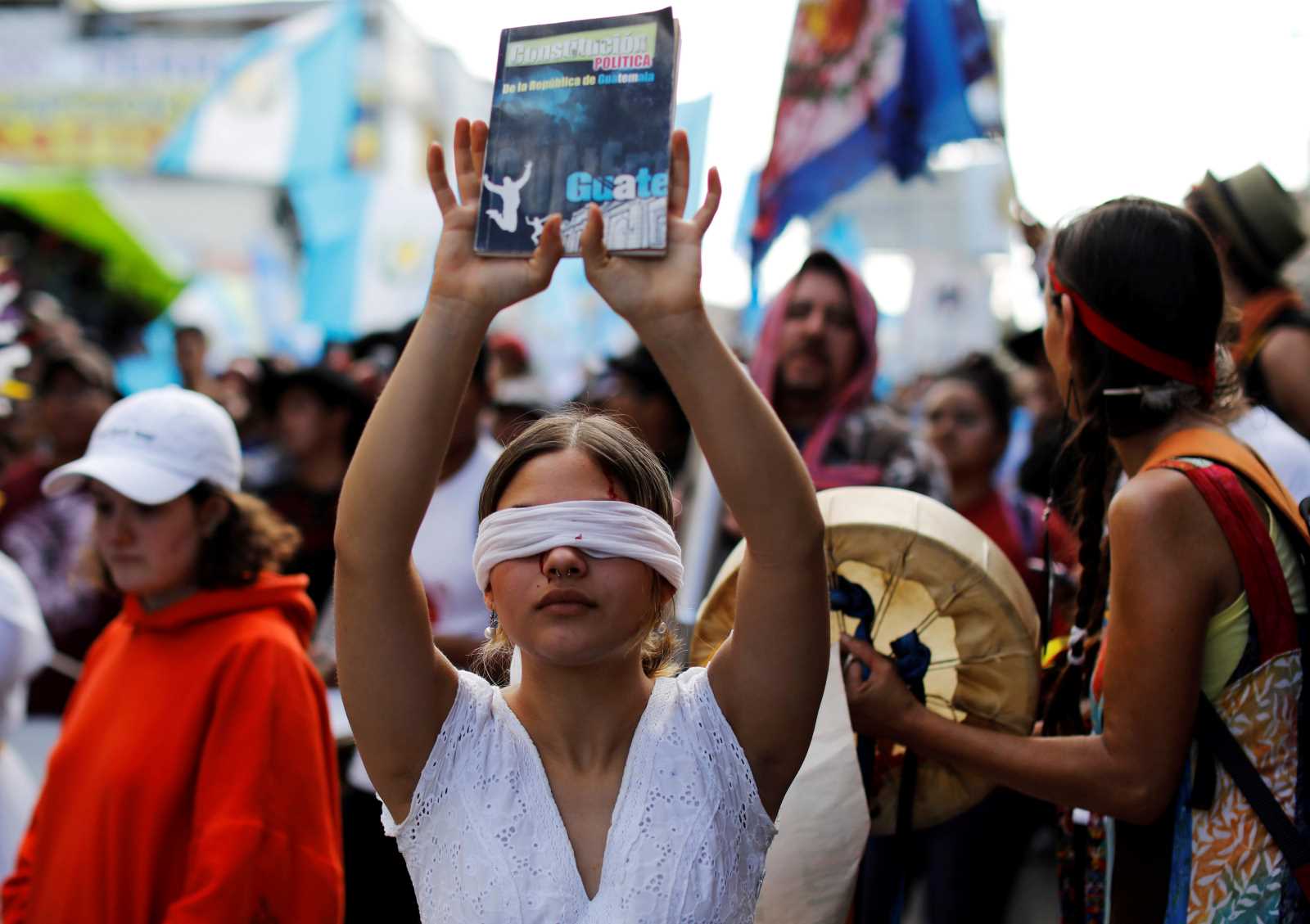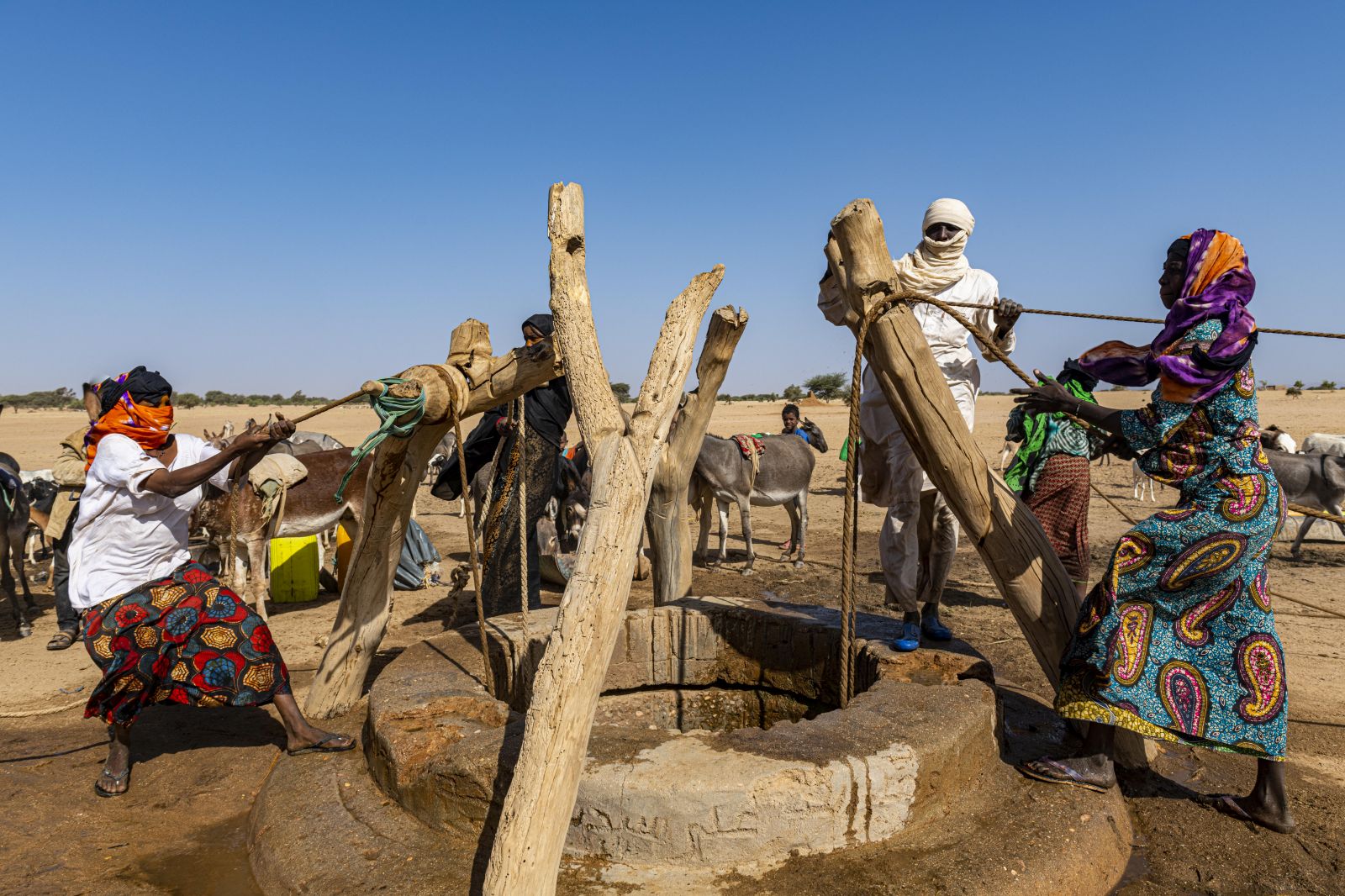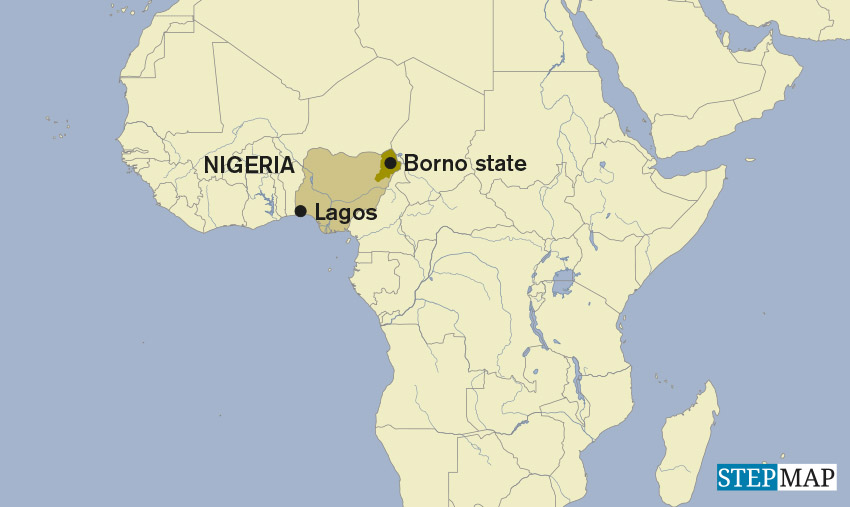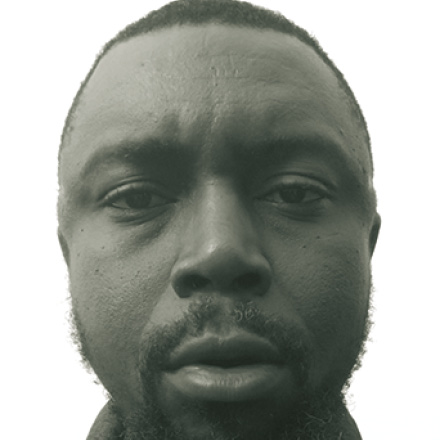Interview
“This is the transition from war to peace”
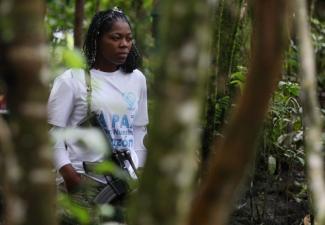
Why did you start campaigning for peace?
After completing my training as a teacher, I left the capital, Bogotá, for my hometown in Putumayo. My daughter was born, but as a young child she became ill because she was given an expired vaccination. She was left paralysed on one side. Health care was very poor in our region. I began campaigning to improve living conditions so this would never happen to another child. In our little town, Puerto Caicedo, a group was promoting peace and justice. It was led by Father Alcides Jiménez Chicangana, who was later murdered. I joined them and became involved.
Why did you join the feminist organisation Ruta Pacífica de las Mujeres?
I am a teacher by profession, but a human-rights advocate by conviction. In 1996, the first women’s march for peace took place in the north of the country; that was the beginning of Ruta Pacífica. In 1997, we cooperated with Father Jiménez on organising a regional meeting of women in the south of the country, where we live. I thought that was a good way to promote human rights and women’s rights. Since then – that is, for the past 20 years – I have been a coordinator for the organisation in Putumayo.
How does Ruta Pacífica promote peace?
The full name of our organisation is: “Ruta pacífica de las mujeres por la trámitación política de los conflictos en Colombia y la visibilisación de las violencias contra las mujeres” (“The peaceful way for women to find a political solution to the conflict in Colombia and raise awareness of violence against women”). The name reflects our programme. Our peace work has the following order:
- incident,
- investigation,
- public education, both formal and informal,
- mobilisation,
- knowledge generation and
- empowerment of women, leaders and their organisations.
Everything is based on the principles of feminism, pacifism, anti-militarism, non-violence and dialogue.
Have you or your organisation ever been threatened?
Many people oppose peace. All of our top people have been threatened. I have been stalked constantly and put under pressure by the paramilitaries. In 2009, they forced their way into my house and started shooting. They killed one of my neighbours and injured my brother-in-law. I happened to be away from home that day. Another time, a paramilitary group kidnapped one of my brothers. I searched for him in the mountains and fortunately found him alive. Many women have been murdered; others have left the movement out of fear. We have a radio show called “Mujer, Caminos y Futuro” (Woman, Paths and Future) and we have frequently been put under pressure to discontinue this. Another threat rural people must live with are anti-personnel mines, munitions depots and improvised explosive devices, which are still buried everywhere.
How did the armed conflict affect your village?
It was terrible. About half of the residents were displaced. People disappeared one after the other, particularly women. There were threats, rapes, massacres, arbitrary detention, power struggles between different armed groups and narco-terrorism. The state was completely absent. Its only intervention was to spray our fields from the air with glyphosate in an alleged effort to destroy coca plants. Paramilitaries forced young girls from our village into prostitution. A friend of mine was murdered and her genitals were mutilated. The paramilitaries cut out the tongue of an indigenous woman and then killed her. The victims’ families were often not allowed to collect the bodies and bury them in the Christian way. Father Jiménez was murdered in 1998 while he was celebrating mass.
Did people in this area vote in favour of the peace deal?
Yes, the vast majority did.
What do people in rural areas expect now?
They expect the government and the guerrilleros to stick to their agreement. Fear and distrust are still widespread. Our institutions are not yet prepared for the post-conflict era. But the overwhelming majority of former FARC guerrilleros support the peace process.
How can people live together peacefully who, until recently, wanted to kill each other?
That’s a good question! The answer lies in making forgiveness a central pillar of our nation’s reconciliation. We also need strategies for peace education and measures for trust building.
How will disarmament work?
It won’t be easy, but it isn’t impossible. The government has to uphold its agreements and safeguard the reintegration of the rebels into civilian life. A pardon could give former FARC guerrilleros security. But there’s no question that they will have to surrender their weapons.
What challenges do you foresee?
Implementation must begin as soon as possible, and it must be adequately funded. It should stay under control of local communities, which must be well prepared for the task. The trust of the people must be earned. But there are a variety of obstacles, including the fact that we will soon have elections and that we still have to deal with high levels of corruption, patriarchal relations, massive social inequality and an economic crisis.
How can trust in the state and the justice system be regained?
It can be done if the state truly cooperates with communities and involves people in strategies for social development. The citizens must be informed about the implementation of the peace process. With regard to the justice system, there has to be a process of transitional justice and some kind of cleansing of the judicial apparatus.
Is reconciliation possible in a village where everyone knows who killed whom?
Yes, but the preconditions are that truth is confronted honestly, justice is served, reparations are distributed and a guarantee is made that this kind of thing will never happen again. We need training to promote reconciliation. Memorial events can serve to prevent forgetting and impunity.
What are your personal expectations for peace?
I want people to be able to once again live with dignity, and I want to be able to live in my beloved village without fear. That is what I want for myself and for all other women too.
Is this the true end of the war?
Well, we must bear in mind that the peace deal only heralds the transition from war to peace. Peace is a collective effort. It is everyone’s right and duty. I will continue to work for it.
How does the younger generation see the future?
Young people do not see themselves as the future of the country, but rather as its present. They are demanding an active role in the peace process. The student and youth movements have been very engaged on this front. In December 2016, a national meeting was held in the city of Medellín, where a youth agenda for peace in Colombia was drafted. My daughter, who is now a university student, was there too. I was very pleased!
Amanda Lucía Camilo Ibarra is the coordinator of the civil-society peace organisation “Ruta Pacífica Putumayo”. She lives in Puerto Caicedo, Putumayo, Colombia.
rutaputumayo@rutapacifica.org.co
http://rutapacifica.org.co/

